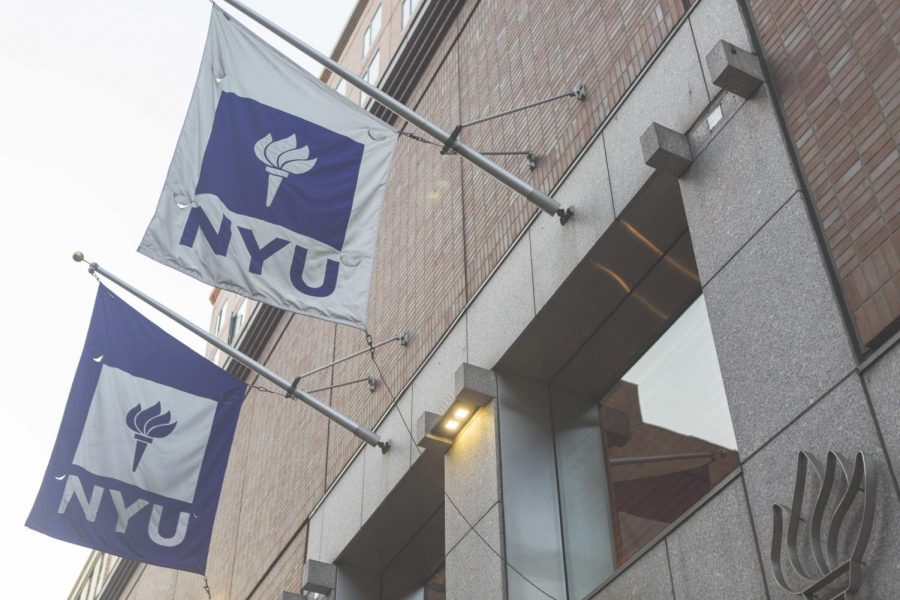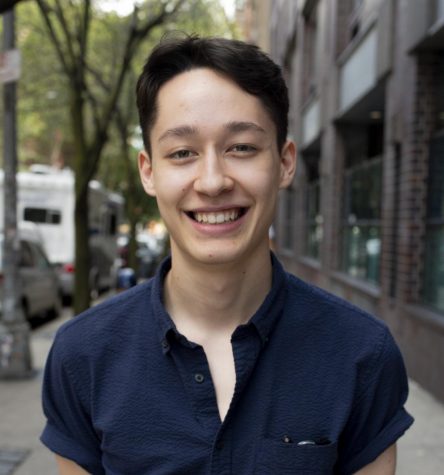NYU’s Newest Diversity Effort, Explained
In the fall of 2015, NYU held a three-hour listening session — facilitated by then-CAS Dean Gabi Starr and Provost Katherine Fleming — that mostly featured students of color discussing the lack of belonging many of them felt within the NYU community.
November 14, 2017
In the fall of 2015, college campuses erupted in anger over the mistreatment of historically marginalized groups. At Yale University, students exploded with frustration over an insensitive email condoning culturally insensitive Halloween costumes that eventually led to a professor’s dismissal. At the University of Missouri, students protested racism and eventually ousted the university president.
That same fall, NYU held a three-hour listening session — facilitated by then-CAS Dean Gabi Starr and Provost Katherine Fleming — that mostly featured students of color discussing the lack of belonging many of them felt within the NYU community.
“NYU has failed its students of color,” Nicole Smith, then a senior, said at the listening session.
“Me and all my friends, 30 minutes in, we started crying and were crying for the rest of the listening session,” Student Body President and fifth-year CAS student Juan Calero said in a recent interview with WSN. “There was this sense of catharsis in that particular moment.”
The listening session represented an emotional inflection point for the university that led NYU to embrace diversity, equity and inclusion initiatives at a breakneck pace.
The day after the listening session, then-university president John Sexton promised to double funding for the Center for Multicultural Education and Programs and increase the center’s staff. He also called on the University Senate Executive Committee to form a diversity, equity and inclusion task force at NYU.
“Yesterday’s event wasn’t the start of the discourse about race, justice, fairness, inclusion and community at NYU; it certainly won’t be the end,” Sexton wrote in an email to the NYU community the day after the listening session. “But I hope and believe it can be a turning point.”
In one of his first moves as NYU President, Andrew Hamilton called on the newly formed Diversity, Equity and Inclusion Task Force to examine and rethink how the university acted in accordance with those values.
Today, NYU will embark on its most ambitious diversity initiative ever when it launches Being@NYU, a campus climate survey that will attempt to evaluate the current attitudes, behaviors and standards of every professor, student and employee at NYU. The survey will accept responses from Nov. 14 to Dec. 14.
A campus climate is broadly defined as how members of a university community feel in relationship to that community. The survey will aim to assess feelings of belonging, inclusion and satisfaction at NYU and among its vast number of constituents, and work to identify the university’s weak spots as it pertains to diversity, equity and inclusion.
NYU partnered with Rankin & Associates, a consulting group, to implement the climate survey and will work with the firm throughout the process. Rankin & Associates has worked with an extensive list of universities, including with the University of Missouri in the wake of the 2015 protests at the school.
This climate survey will be the bar NYU measures itself against in the future.
“This survey needs to be successful for us to understand how we are as a university,” Calero said.
What is the campus climate survey?
The survey will consist of a series of questions, some quantitative and some qualitative, that will attempt to answer a complex range of questions that NYU has yet to ask itself in a rigorous, comprehensive manner.
“Who are we? Where are we headed? What does that look like? Where are the gap areas? Where are the areas where people feel like they’ve been left behind or experiencing inequity?“ Senior Vice President for Global Inclusion, Diversity and Strategic Innovation Lisa Coleman said. “We don’t know yet.”
When the survey concludes, NYU will receive a detailed report (the full report Rankin & Associates delivered to the University of Missouri was over 500 pages) and an executive summary of the survey’s findings. In those reports, Rankin & Associates will offer recommendations to improve the campus climate, but the onus is ultimately on NYU to decide what to do with the findings.
Why now?
A climate survey, taken at regular intervals, was one of several key recommendations made by the Diversity, Equity and Inclusion Task Force that was co-chaired by Charlton McIlwain, a Steinhardt professor and member of the Being@NYU committee.
The task force was charged with coming up with an action plan in response to the listening session of 2015.
“This [survey] provides an opportunity for a wider swath of the university community to be heard, to be listened to, not to mention faculty and staff who haven’t had such a listening session but have expressed interest in conveying their thoughts,” McIlwain said in an interview. “This is an exercise in listening.”
Being@NYU is also the first project Coleman has led since arriving from Harvard University, where she served as Chief Diversity Officer and Special Assistant to the President for nearly eight years.
Why did Coleman choose this campus climate survey to be the first initiative she focused her time and energy on?
“NYU is notoriously difficult to navigate as a student, for a variety of reasons in a variety of ways, depending on how you identify,” Calero said.
Since 2000, the size of NYU’s incoming undergraduate class has grown by 1,000 students, a 20 percent increase, which is to say nothing of graduate students and schools, the two global campuses and several study away sites NYU has expanded. In short, NYU has grown at a remarkably fast pace.
“NYU in 2017 is not the same as it was in 1999 at a fundamental level, and in that growth, certain aspects of community stability and structural stability have had to play catch up,” Calero said. “Specifically, student community and faculty community felt like they were being left behind.”
The climate survey will be the first step in rectifying these missteps. NYU will for the first time attempt to measure and improve its social climate. As the Being@NYU website states, “organizations only manage what they measure.“
“This gives us actionable data that allows us to capture the intuitive and anecdotal aspect of how NYU has changed but also how NYU can change and what NYU could be,” Calero said. “Which goes part and parcel with what NYU isn’t.”
Who does NYU want to reach with the survey?
The Being@NYU committee wants to responses from every corner of NYU — from every campus, every study away site, every school and every department — so that the committee can get a full, detailed picture of how various students, faculty and staff of different backgrounds feel.
“We want the maximum participation possible,” Coleman said.
Every single professor, student and staff member will be able to participate in the survey, but privacy will also be paramount. Though NYU will receive a detailed report on the survey’s findings, NYU will not receive any of the raw data collected in the survey and will not be able to identify any individual’s answers to the survey.
“We can drill down into the data, but we will not do that to the point that we can identify individuals,” Coleman said. “We want people to be assured that this is anonymous.”
Participation will be monitored throughout the survey period so NYU will be able to more effectively focus its outreach efforts; if, for example, a certain department hasn’t been responding to the survey, the Being@NYU working group will be able to explicitly reach out to that department.
What will come of the survey?
The Being@NYU climate survey will be one of the first tangible actions in response to the 2015 listening session.
“I’m hoping that the survey will validate some of the anguish that came out of that listening session,” Calero said.
Institutions can be slow to change. Current seniors, juniors and perhaps sophomores might not see the change that comes as a result of this survey. But Coleman, who earned her doctorate in Social and Cultural Analysis from NYU, doesn’t see that as a reason not to try.
“I’m an alum; I care about NYU,” Coleman said. “I care about who we are and who we are going to be and who we imagine ourselves to be.”
Email Sayer Devlin at [email protected].
























































































































































